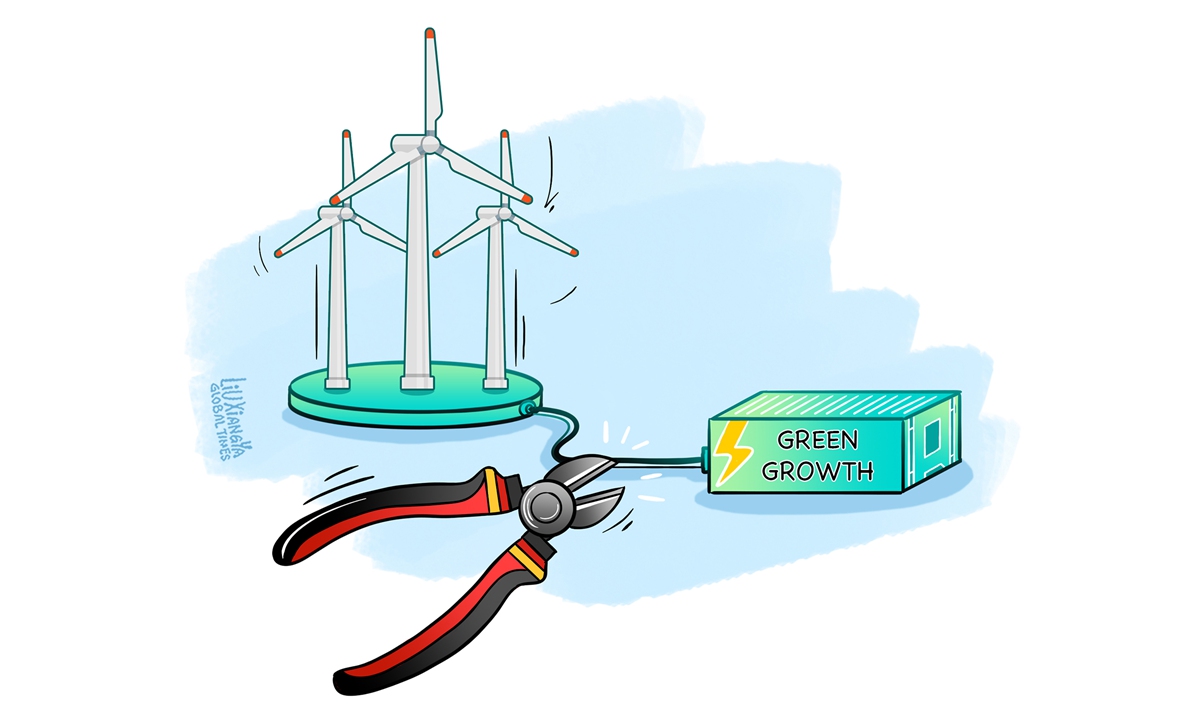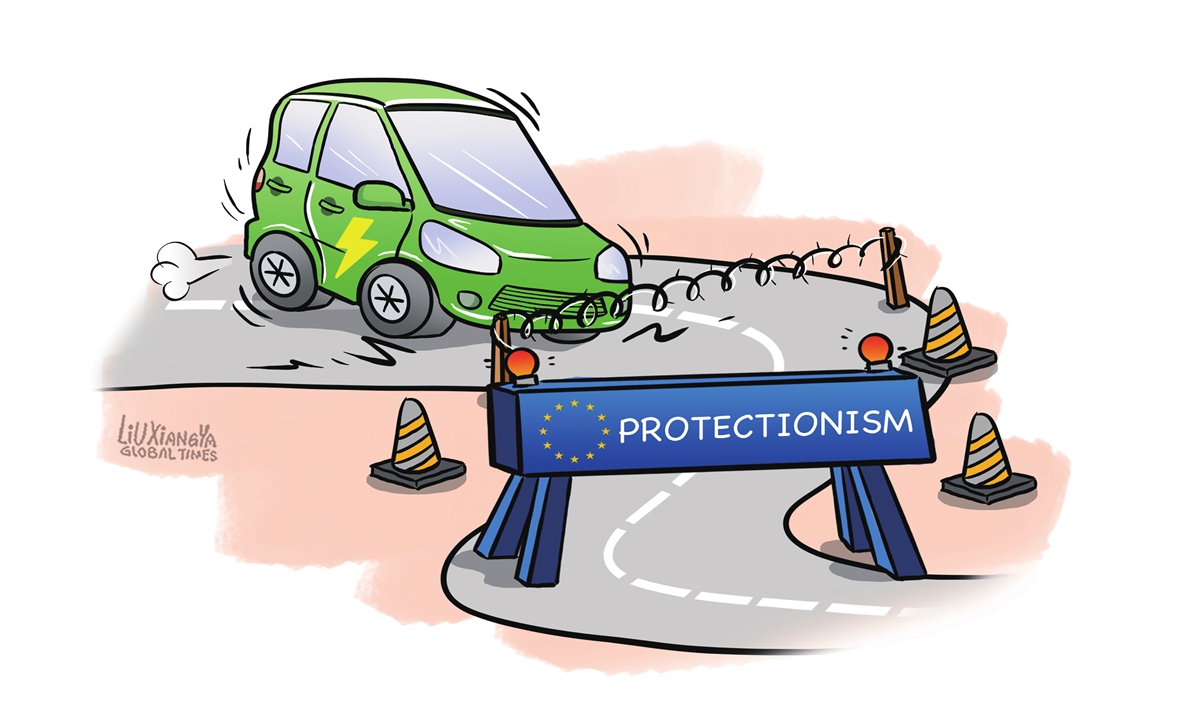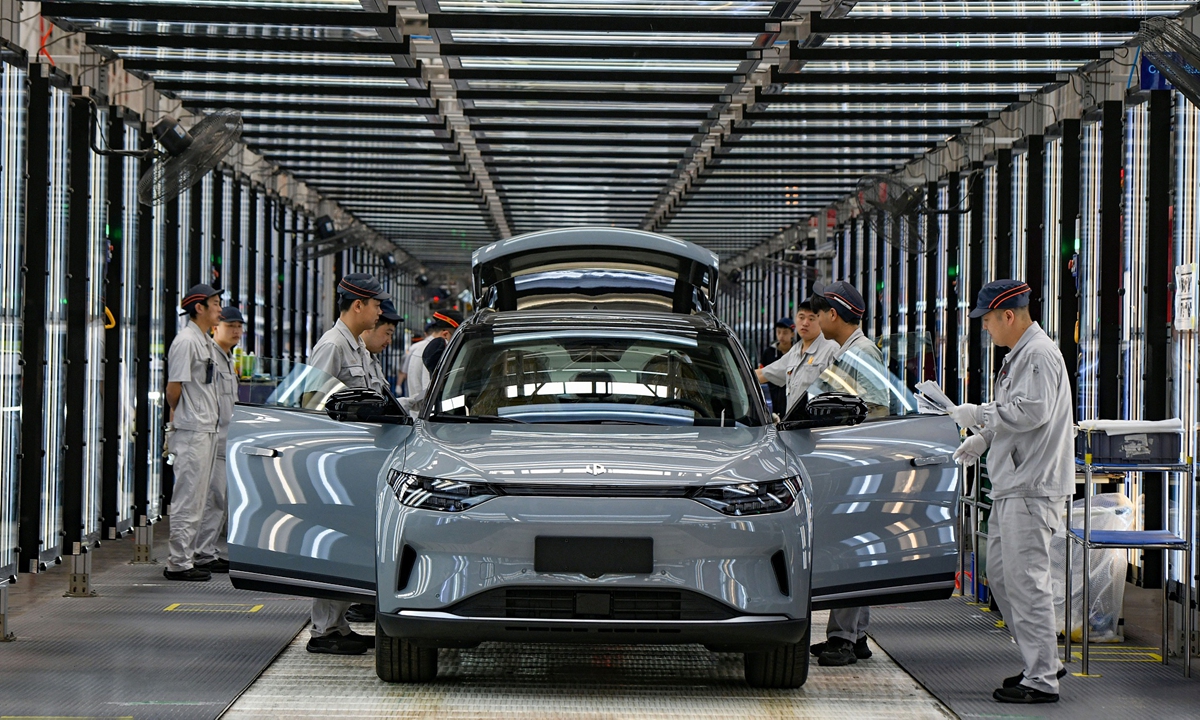
Illustration: Liu Xiangya/GT
Germany's economy ministry will look "very closely" into a deal to supply Chinese-made wind turbines for an offshore project in Germany's North Sea, Reuters reported on Wednesday. If the report is true, does it mean EU countries will enhance their review procedures of Chinese-made wind turbines? It's hard to say, but this does deserve attention, given a rise of trade protectionism in the EU toward China's new-energy products.The EU in April announced a probe into Chinese wind turbine suppliers for alleged "government subsidies." Such an investigation, which is a typical trade protectionism practice, could saddle the bloc's renewable project developers with high costs and slow down their decarbonization efforts. We hope the EU will reflect on this round of conflict with China and stop its protectionist measures, instead of continuing to rush forward on the wrong path, further complicating the scenario.
It seems that trade protectionism is rising in the EU. A logical explanation is that some European companies, which have faced intense competition from Chinese competitors, are hesitant about upgrading technologies and competitiveness, and instead are trying to lobby the government to roll out protectionist measures to squeeze cost-effective Chinese new-energy goods out of the EU market. However, increased protectionist measures, as well as investigations against Chinese-made wind turbines, will undermine the overall interests of the EU.
First, a rise in trade protectionism will probably lead to higher energy bills for ordinary people. The North Sea project is a typical example. The project, dubbed Waterkant, will generate electricity for around 400,000 households, contributing to Germany's goal to cover 80 percent of its power needs by renewable energy by 2030, according to Reuters. Obviously, if the German government inappropriately intervenes in the project and sets up obstacles for Chinese companies hoping to contribute something positive to its development, German households will bear the brunt of losses caused by trade protectionism against Chinese-made wind turbines.
Second, the EU is committed to remaining the global leader in renewables. In the process, wind power is key to achieving the EU's renewable energy targets and reaching carbon neutrality by 2050. To accelerate wind energy manufacturing across the EU, the bloc should encourage cooperation between EU companies and world-class enterprises, rather than isolating the EU market and providing a protective umbrella for uncompetitive companies.
Third, inventions made by Chinese new-energy companies have sparked fierce competition among manufacturers. This is not necessarily a bad thing. We hope EU companies can bravely face all kinds of problems and continuously improve their competitiveness through a just, fair and dignified manner.
In this context, China and Europe need cooperation. Economic complementarity serves as a key link in China-EU new-energy supply chains.
Undoubtedly, China is poised to remain at the forefront of the global green and low-carbon transition, steadfast in its commitment to sustainable development. Leveraging its strengths in sectors such as wind turbines, solar panels, lithium batteries and electric vehicles, China will continuously improve its product quality and reduce costs through dedicated efforts.
Moving forward, China will prioritize enhancing its research and development capabilities in the rapidly expanding new-energy industries, despite potential technological and trade barriers imposed by external forces.
Additionally, China is expected to strengthen its collaboration with other economies, fostering openness within industrial chains and creating new opportunities for all parties involved.
Furthermore, China will increase investments in new-energy industries in both developing and developed countries, stimulating local economic growth and promoting sustainable development.
Despite challenges from rising protectionism in other countries, China's wind power and other new-energy industries are projected to continue their upward trajectory. Through these efforts, China will play a pivotal role in advancing global free trade and the transition to green energy.
We hope the EU can recognize that China and the EU are partners in the development of the new-energy industries, rather than zero-sum rivals.
The author is a reporter with the Global Times. bizopinion@globaltimes.com.cn



